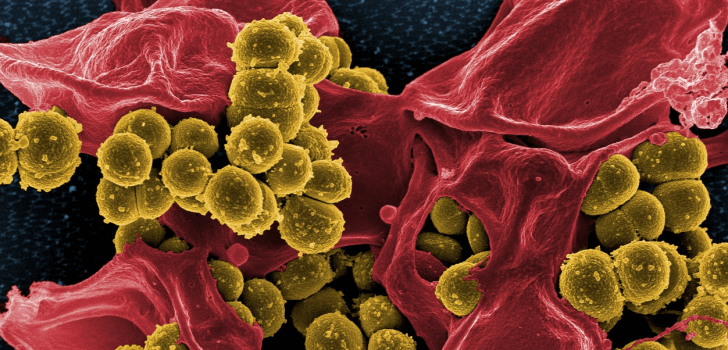Many bacterial staph infections, which are also known as MRSA, are becoming increasingly resistant to common treatment methods. As MRSA becomes harder to combat with typical medications, many people are starting to die or have limbs amputated from routine staph infections. This represents the latest in a series of cases in which bacteria become resistant to medication, leading to the creation of so-called “superbugs”.
According to the Centers for Disease Control and Prevention, about two million people in the United States become infected with bacteria that is resistant to treatment every year. Roughly 23,000 of these people die because of their bacterial infection.
MRSA itself is particularly widespread. Both amateur and professional athletes have been known to come into contact with the bacteria, because they often experience skin-to-skin contact. The contact can occur both on the field and in the locker room. Additionally, armed forces and prisoners are also highly prone to MRSA infections.
However, anyone can become infected with the bacteria. Scientists have found MRSA on airplane seats, supermarket meats, coastal waters and even the wind. The bacteria is so common that virtually everyone is at some level of risk.
With antibiotics quickly becoming less and less useful, a common MRSA infection, which used to be easily treated, is now potentially deadly. Additionally, things like strep throat, ear infections and routine cuts can be lethal.
Some physicians are taking drastic measures. Often, the only way to stop a bacterial infection from spreading is to cut out the infected area entirely. The doctors simply have no other choice when the infection cannot be slowed down by antibiotics. Of course, this method doesn’t work when a critical area of the body becomes infected.
Even professional athletes are dealing with the problem. New York Giants tight end Daniel Fells has been fighting an MRSA infection on his ankle. While the infection is now being better contained, doctors were worried they would have to amputate his foot at one point.
Currently, scientists are working to develop a vaccine for MRSA, as well as other common bacterial infections that have become resistant to antibiotics. But for now, the overuse of antibiotics is still a major issue. Once a bacteria with resistance to common antibiotics reproduces, the newborn bacteria are also resistant to treatment. As bacteria reproduce quickly, this can create a dangerous situation very quickly. The widespread use of antibiotics is only making this situation worse.
Agriculture is a particularly bad area in this regard. Most livestock are given antibiotics so that they can grow faster while consuming less food. This frivolous use of antibiotics is allowing many different types of bacteria to develop stronger immunities. Many of the strains of bacteria that affect livestock can also affect humans.
For now, the best thing that can be done until a good solution can be created is to spread awareness. The World Health Organization declared a World Antibiotic Awareness Week earlier this month. Meanwhile, the United States government has developed a national plan for fighting against antibiotic resistance. Work is being done, but for some people, it might be too little too late.
Stay Connected